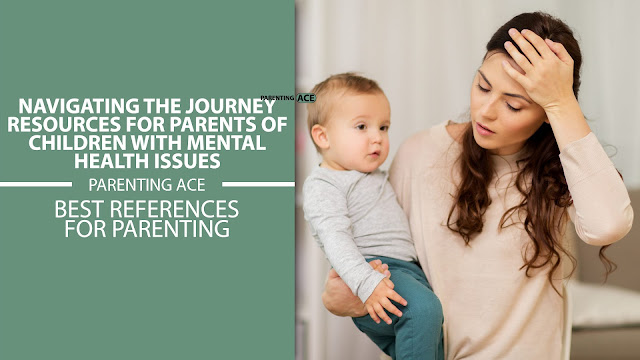Navigating the Journey: Resources for Parents of Children with Mental Health Issues
Feeling lost in a maze of mental health resources for your child? This post is your roadmap! We'll explore a variety of resources informed by child development and mental health experts. From national organizations like NAMI and AACAP to online resources like MentalHealth.gov and The Trevor Project, we'll equip you with knowledge about support groups, educational materials, and even financial assistance programs. We'll delve into resources within your child's school system and explore the role of therapists, psychiatrists, and support groups. Remember, there is help available, and this post is your guide to finding the perfect resources to support your child's journey towards mental wellness.
 |
| Navigating The Journey: Resources For Parents Of Children With Mental Health Issues |
What Resources Are Available For Parents Caring For Children With Mental Health Problems?
When your child faces mental health challenges, it can feel overwhelming. You may be unsure where to turn for support, or what resources are available to help your child and your family navigate this journey. This article explores a variety of resources, drawing on insights from developmental psychology, family psychology, and clinical psychology, to empower you as a parent or caregiver.
National Organizations:
- The National Alliance on Mental Illness (NAMI): NAMI is a leading mental health advocacy organization offering a wealth of resources, including support groups, educational materials, and a helpline (https://www.nami.org/Home). They have specific programs and resources targeted at families with children facing mental health concerns.
- The American Academy of Child and Adolescent Psychiatry (AACAP): The AACAP website provides information on mental health conditions in children and adolescents, as well as a directory of child and adolescent psychiatrists (https://www.aacap.org/).
- The Jed Foundation: The Jed Foundation focuses on mental health resources for teens and young adults, offering online resources, school partnerships, and initiatives to promote emotional well-being for teens and their families (https://jedfoundation.org/).
Online Resources:
- MentalHealth.gov: This government website provides a comprehensive overview of mental health, with specific sections dedicated to children and adolescents. It includes information on different mental health conditions, treatment options, and finding help (https://www.samhsa.gov/mental-health).
- The National Institute of Mental Health (NIMH): The NIMH website offers extensive information on mental health research, including resources specifically targeted at children's mental health (https://www.nimh.nih.gov/).
- The Trevor Project: The Trevor Project provides crisis intervention and suicide prevention services specifically for LGBTQ+ youth (https://www.thetrevorproject.org/).
School-Based Resources:
- School Counselors and Social Workers: Schools often have counselors and social workers on staff who can provide support and resources for children's mental health concerns. They can also help connect families with additional resources in the community.
- Individualized Education Plans (IEPs) or 504 Plans: For children with mental health conditions that impact their learning, schools may be able to develop an Individualized Education Plan (IEP) or a 504 Plan to provide academic accommodations and support.
Mental Health Professionals:
- Therapists: Therapists can provide individual therapy, family therapy, and group therapy for children and adolescents with mental health concerns. Therapy can help children develop coping mechanisms, manage emotions, and improve overall well-being.
- Psychiatrists: Psychiatrists are medical doctors who can diagnose mental health conditions and prescribe medication if needed.
- Support Groups: Connecting with other parents who are facing similar challenges can be a source of support and encouragement. Support groups can be found online or in your community.
Financial Assistance:
- Insurance: Many insurance plans cover mental health services. Check with your insurance company to understand your coverage for therapy, medication, and other mental health services.
- Government Programs: Some government programs offer financial assistance for mental health services. Explore options such as Medicaid or CHIP (Children's Health Insurance Program) to see if you qualify.
There is no shame in seeking help for your child's mental health. Mental health conditions are treatable, and with the right support, your child can thrive. The resources listed above can be a valuable starting point on your journey towards your child's mental wellness.
By being proactive and seeking the resources available, you are demonstrating your love and support for your child. Remember, there is help available, and you don't have to navigate this journey alone.




